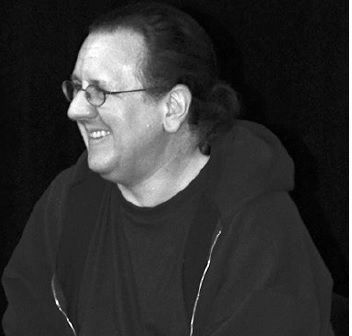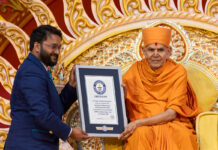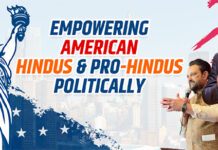Sunthar Visuvalingam
CHICAGO: Jeffery D. Long is a Professor of Religion and Asian Studies at Elizabethtown College in Pennsylvania. He is associated with the Vedanta Society, Dharma Academy of North America (DANAM) and Hindu American Foundation (HAF). His formulations of “Hindu process theology” focus on religious pluralism from the perspective of A.N. Whitehead’s process philosophy.
His books include A Vision for Hinduism: Beyond Hindu Nationalism, Jainism: An Introduction, The Historical Dictionary of Hinduism, and the edited volume Perspectives on Reincarnation: Hindu, Christian, and Scientific. In 2007, Long contributed to HAF’s “Hyperlink to Hinduphobia: Online Hatred, Extremism, and Bigotry Against Hindus.” He also weighed in on the California textbooks controversy.
In 2018, Long received HAF’s Dharma Seva Award “for his efforts to help mainstream Americans understand Hinduism in academia and public schools.” Ahead of his February 01 keynote address at HAF’s Chicago fundraiser, India Post interviews Long on Hinduism in North America.
How did you become such a committed American Hindu academician?
I was drawn to Hinduism, specifically Vedanta, from an early age. I found in the Bhagavad Gita the philosophy I was seeking as I dealt with the worst crisis I have experienced: the death of my father when I was twelve, and the events surrounding it.
As my commitment gradually deepened, I was drawn to the tradition of Sri Ramakrishna and Swami Vivekananda, in which I am an initiated practitioner. I grew up in the Roman Catholic tradition, which has theologians, or professional intellectuals whose job is to articulate an understanding of the faith for the wider public. I have aspired to serve in a similar role for the Hindu community: to be something like a Hindu theologian.
Why growing Hinduphobia despite a thriving diaspora and excellent India-US relations?
Hinduism is deeply misunderstood in North America. People are ignorant of the depth of its philosophies and effectiveness of its spiritual practices (associating such things with Buddhism, which has more positive associations for most Americans). Hindu traditions have been poorly represented in both the educational system and media, with an emphasis on the exotic, or on phenomena like caste, which are controversial among Hindus but are presented as being blindly followed without question.
What has been the contribution of your alma mater UC to ‘delegitimize’ Hinduism?
The University of Chicago is famous for being a place for critical thinking. I chose to study there because I knew my beliefs would be criticized, and I would need to learn to argue and respond to the critiques of others. It was an ‘intellectual boot camp.’ I have no regrets about studying there.
The tragedy is that there is a widespread tendency—not only at UC, and not only in the academy—to identify critical thinking with a not-so-critical rejection of religiosity in all forms, and adherence to a materialist worldview in which philosophies like Vedanta cannot be taken seriously on their terms.
This is the root issue that drives a wedge between many scholars and practitioners. If Hinduism does not make sense on its terms, it must be explained away through psychology, politics, economics, and so on.
Has Hindutva been protecting Hinduism or betraying its pluralistic ethos?
Hindutva cultural politics has been, overall, pursued to protect Hinduism, but, yes, in the process of doing so, there is the risk of harming the very dharma one is seeking to protect. The desire to protect something arises from fear of its loss. I am not saying that all such fears are unwarranted.
But, as Swami Vivekananda taught, on the spiritual path, fear is something we must eventually overcome. The challenge is to see the divinity in all beings, even those we see as our opponents. Politics worldwide has become excessively charged with fear and hatred. Hindus are no worse than anyone else in this regard.
But Hindus also have the spiritual and intellectual resources to show the world a better way of being. The world should listen. Moreover, there is a beautiful harmony between American and Hindu ideals of freedom and mutual acceptance. This needs to be emphasized.
What is Hindu process theology?
It attempts to ‘translate’ Hindu concepts for a modern global audience by using terms from an important current of Western thought, a cultural translation of universal ideals pioneered by Sri Aurobindo in his great work, The Life Divine. I have also drawn on the Jain teaching of anekanta that, to see the whole truth, one must listen and learn from the perspectives of others, even while adhering to our own. Rooted in a definite metaphysical view of reality in terms of which the relative truth of diverse claims can be evaluated, process theology is ultimately more inclusivist than a relativist.







